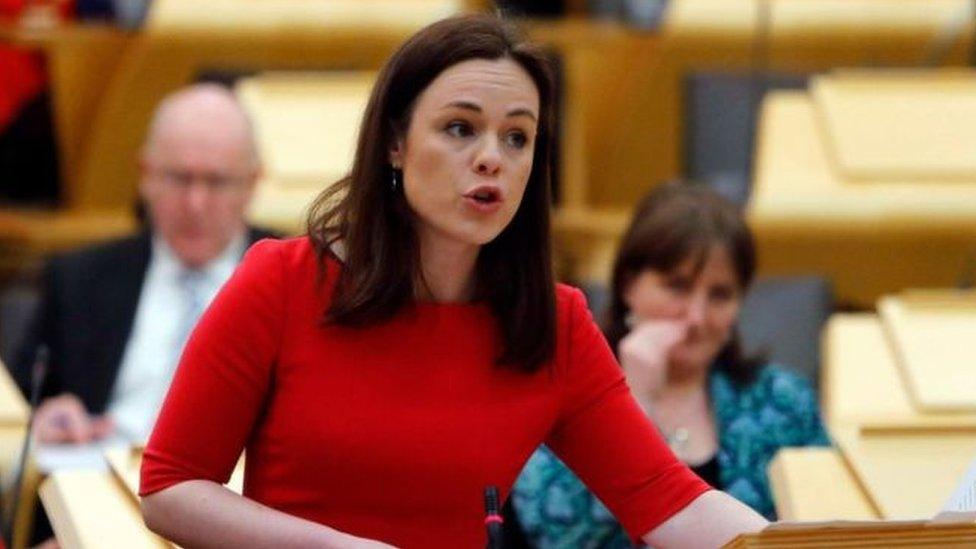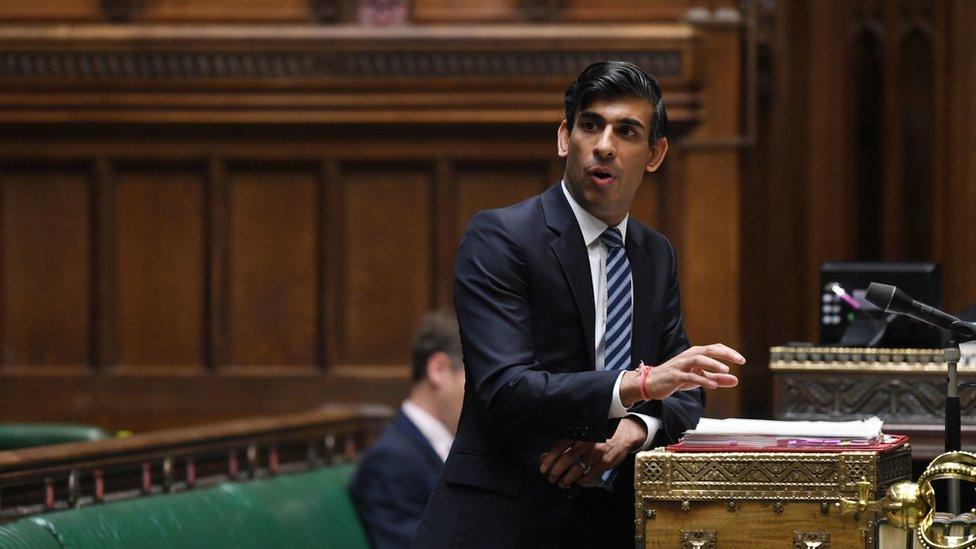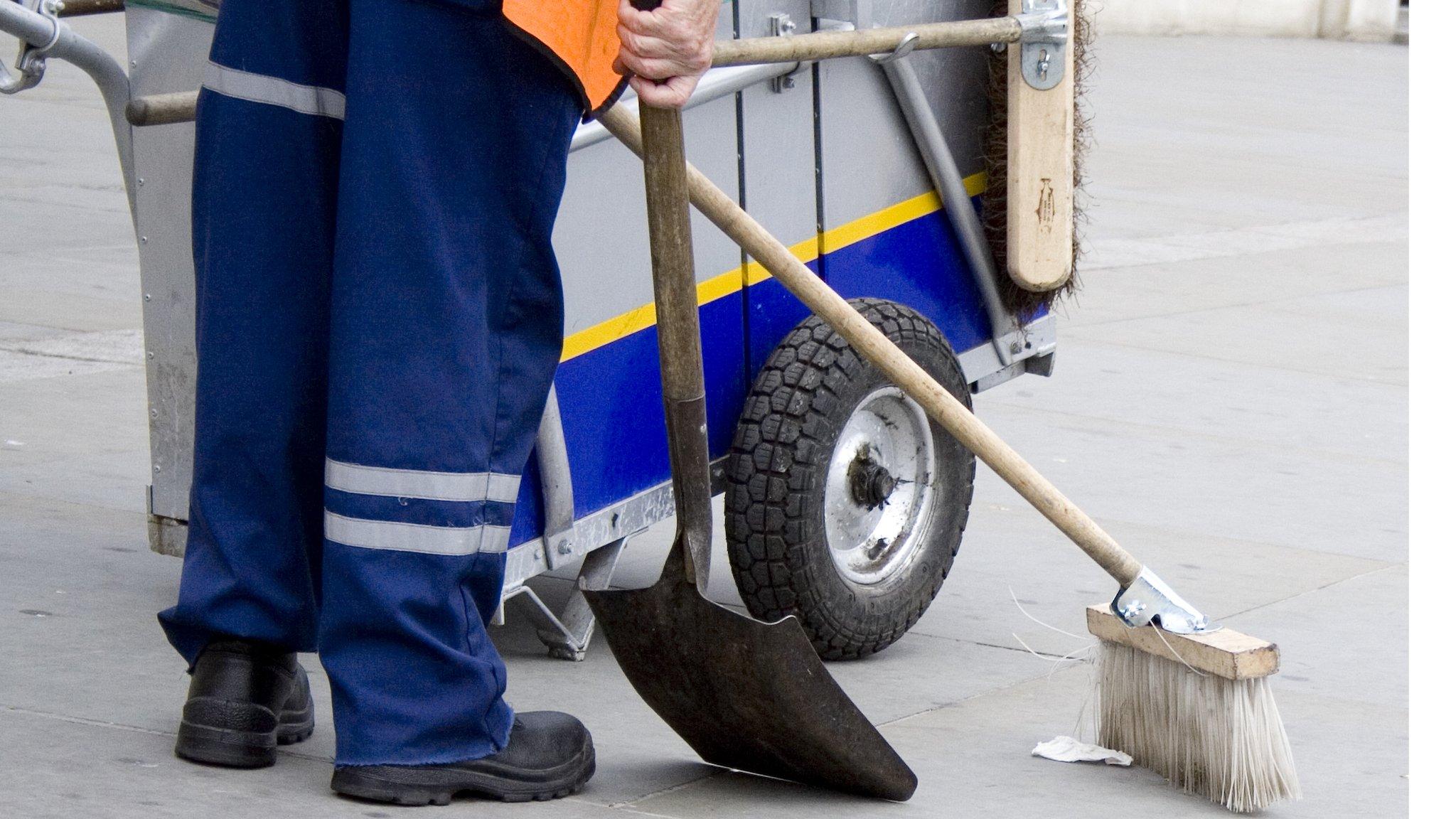Public sector pay freeze 'misjudged' says Scotland's finance secretary
- Published

Scotland's finance secretary has said the chancellor's plan to freeze some public pay "absolutely misjudges the value of frontline services".
Kate Forbes said she disagreed with the decision, announced by Rishi Sunak during the UK government's Spending Review on Wednesday.
The chancellor said the pay freeze will affect 1.3 million workers.
He said the freeze was part of the "tough choices" arising from the £280bn cost of the pandemic so far.
The Scottish government will publish details of the public sector pay awards it controls in January.
Ms Forbes stopped short of promising a public sector pay rise but said January's Scottish budget would include "a recognition of the work that our key workers have done".
Staff on less than £24,000 and some NHS workers will still get a pay rise under the UK government's plans.
Speaking to Good Morning Scotland, Ms Forbes: "I think the pay freeze absolutely misjudges the value of frontline services, I absolutely disagree with the chancellor's approach to freezing pay of public sector workers.
"Just a few short months ago we were applauding the key workers who were working on the frontline and responding to Covid, and now they are seeing their pay frozen.
"What you can assume is we will build on our approach of the last few years which is to recognise the work of key workers."
In Scotland, many public sector pay awards are made or negotiated separately from the UK, including local government workers, GPs and teachers.
January's budget comes ahead of the Holyrood election on 6 May.
'Tough choices'
Mr Sunak has said the economic emergency the UK faces means "tough choices" had to be made over which public sector workers would get a pay rise.
Speaking to BBC Breakfast, he said: "I've had to make some tough choices and what I couldn't do is justify an across-the-board rise in public sector pay."
Alister Jack, the Scottish Secretary, added that the chancellor's Spending Review was aimed a trying to "re-inflate the economy by keeping money in it and see tax receipts go up from business activity."
- Published25 November 2020

- Published26 November 2020

- Published26 November 2020
